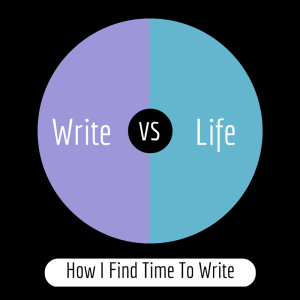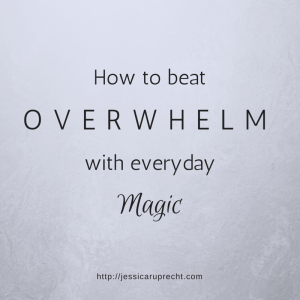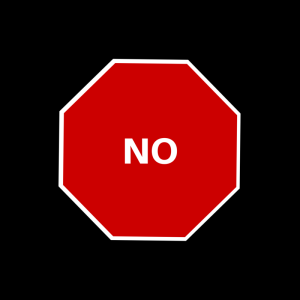 Do you struggle to find time to write? I know I do. One of my resolutions for the New Year was “to write until I finally feel like a ‘real’ writer” — so with that goal set for 2015, I’ve been taking a hard look at how I spend my time.
Do you struggle to find time to write? I know I do. One of my resolutions for the New Year was “to write until I finally feel like a ‘real’ writer” — so with that goal set for 2015, I’ve been taking a hard look at how I spend my time.
Because the fact that I had to make this a goal means that I clearly haven’t been focusing enough on finding time to write.
Plus, it’s not just writing, is it? It’s everything. It seems like everywhere you look these days there’s someone with a time problem. You don’t even have to throw a stone anymore to find someone whinging on about all the things they’d do if only they had the time…. Our national time crisis is so bad the Economist bothered to publish an article about it.
So in the face of such time-scarcity, what’s a writer to do? The bad news is that sometimes desperate times call for drastic measures. The good news is that you probably already have more time than you think you do.
Here are seven strategies I use to find time to write:
Hint: These strategies won’t just help you find time to write! They’re relevant for anything project you’ve been struggling to find the time for.
1. Get up early.
This is a habit I’ve only just started it this past week, but so far it’s going great and I’m actually really enjoying it — I haven’t been up this early since college and I’d forgotten how quiet the world is before sunrise. Getting up early is a bold move and one I’ve been pondering for at least a year, but it wasn’t until my new resolution got me focused and I stumbled across this highly motivating blog post that I finally decided the time had come. As of this week my alarm goes off at 5 am, and I’m writing by 5:30 am. This gives me an hour of distraction-free writing time before I have to get up and go about my day. It’s early days yet, but so far the results have been remarkable.
2. Find the time when you’re at your best.
Sometimes you can’t increase quantity but you can increase quality — if you can’t find more time in your schedule, is there a way you can rearrange things to take advantage of your most creative time? For me, getting up at 5 am does this. I’m always exhausted when I get home from work and don’t have much creative mojo left in me. If you’re a night owl, maybe staying up late to write works best for you. Maybe your best hours are right after lunch. Find whatever works for you and rock it!
3. Lose the distractions.
It’s taken me just about two years to win this battle (bad habits die hard!), but I’m pretty much there these days. Distraction means different things to different people — for me the worst offenders were my Netflix subscription, a handful of TV shows I’d been watching for years, a rampant blog addiction fed by Feedly, and a bad habit of getting sucked down the black hole of Google. These days I’ve cancelled my Netflix subscription, I don’t watch a single TV show, and I’ve massively pruned back the number of blogs I subscribe to (via RSS or email) . The goal here is to keep the focus on quality, not quantity.
Also, if you’re struggling to wean yourself off of distractions, do NOT keep them open in tabs in your browser. If you’re done with Facebook and it’s time to write, close it down. I also think disabling your wi-fi before turning your computer off for the night would work great for early morning writers (so far I haven’t needed to, but I’ll start if I have to).
4. Streamline anything and everything.
Aka, your slow cooker is your best friend. Cooking is something I like to do, but it can also be a huge time-sink. Between menu planning, grocery shopping, and food prep, cooking for the week ahead can pretty much kill an entire day of my weekend. This strategy is about finding ways to spend less time on the things you need to get done, without sacrificing the quality of the result, and the slow cooker is my best weapon — an easy way to make a week’s worth of nutritious meals, literally while I sleep.
5. Kill your social life.
I wish I jested — but I’m actually serious. Or at least I’m mostly serious. As writer Dani Shapiro so astutely points out life is the stuff of art, just as art is the stuff of life and so you can’t really have an art without a life. But these days there’s a lot of opportunities to waste your time in the company of people, and speaking personally, I’ve found that in my life there’s simply not a lot of room for both. Again, my best recommendation is to choose quality over quantity. Do the people you spend time with energize and nourish you or do you leave their presence feeling drained?
6. Leverage your commute (if you can).
This is my least favorite option and I rarely practice it. The reality is that I spend 10 hours a week on a bus and which is a lot of hours I could be using for writing. Unfortunately the reality is also that I get so self-conscious writing on the bus that I pretty much can’t string words together into meaningful sentences. The only way I’ve found to make it work is on my phone (the screen is too tiny for me to read — let alone the person sitting next to me!) — but writing on one’s phone, while possible (I’ve managed at least 2 pages/hour in times of desperation) is generally incredibly slow and frustrating. If you can write with someone sitting next to you and have the time to do so, then I wish you godspeed. Personally, I’ll stick to the company of my Kindle.
7. Take your writing on vacation.
This is an option I’m planning to try out this year, but which I haven’t done yet. It seems to me like planning a writing retreat for yourself would be a fun (and budget-friendly!) way to vacation. Whether that’s as part of a formal writer’s retreat, a rented cabin in the woods, or an AirBnB flat in the city of your choosing — I think it sounds like a pretty fantastic way to spend a week’s vacation!
That’s what I’ve got for now — If you have any other ideas, feel free to share them in the comments!



 With the holidays nearly upon us, it seems like a good time to take a step back and think a little bit about overwhelm. Because overwhelm is the secret schedule-killer just waiting to derail your holiday plans.
With the holidays nearly upon us, it seems like a good time to take a step back and think a little bit about overwhelm. Because overwhelm is the secret schedule-killer just waiting to derail your holiday plans. When I graduated from college, five years and two degrees later, I entered the workforce. A temporary summer internship obtained through my Master’s thesis advisor turned into a full-time position and more than a year and half later I’ve found myself inexplicably and unexpectedly a cog in the nation’s corporate wheel. And while I’ve come to really like not being in school, it has honestly been the biggest adjustment I’ve ever had to make. Much bigger and harder than the adjustment required after leaving home and moving from California to Boston to attend college in the first place.
When I graduated from college, five years and two degrees later, I entered the workforce. A temporary summer internship obtained through my Master’s thesis advisor turned into a full-time position and more than a year and half later I’ve found myself inexplicably and unexpectedly a cog in the nation’s corporate wheel. And while I’ve come to really like not being in school, it has honestly been the biggest adjustment I’ve ever had to make. Much bigger and harder than the adjustment required after leaving home and moving from California to Boston to attend college in the first place.